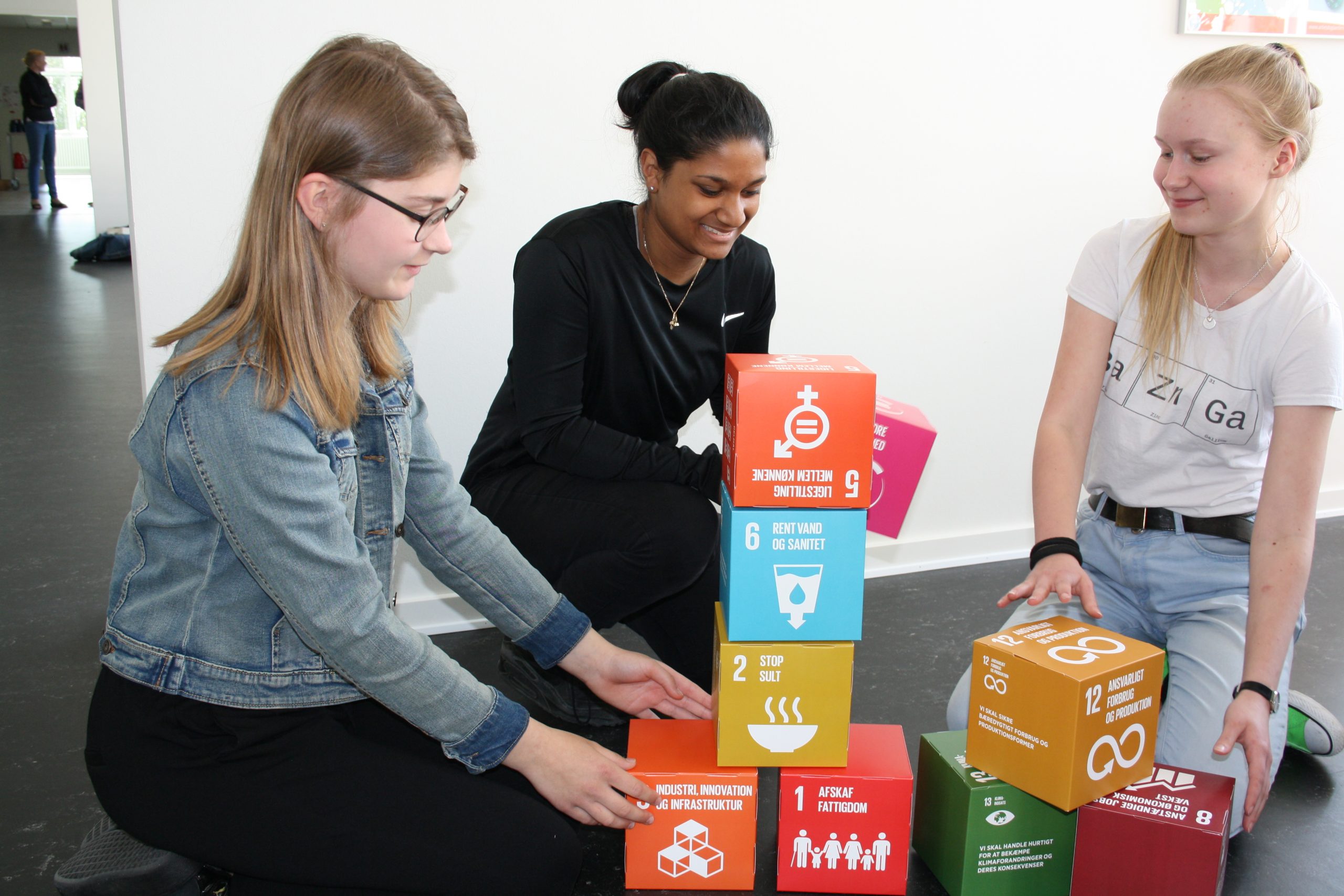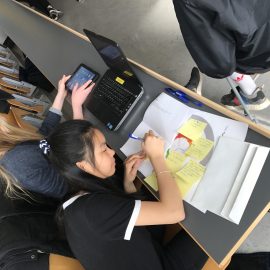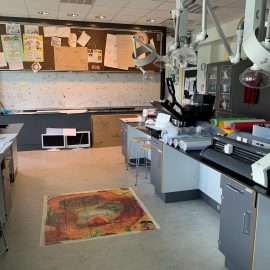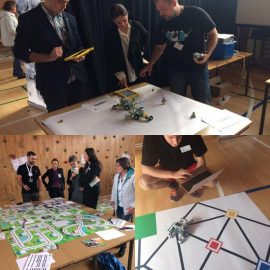A project that focuses on design thinking, digital fabrication and the understanding and use of technology across all subjects.

FabLab classroom
© FabLab
Theme:
Design process thinking and digital fabrication – the understanding and use of design and technology in the learning community
Basic Information of the Project:
The central FabLab, the central LEGO Education Room and the participating schools – both indoors and outdoors. We work with the psychical room and the mindset – our foundation lies in the thoughts of the “Lifelong Kindergarten” project and “Playful Learning” combined with 21st-century technology and learning skills
How the case links to the UN sustainable development goal:
In the municipality of Kolding and at the FabLab at Pedagogical Center the SDGs are used as an umbrella for all activities. Therefore our FabLab@school project connects to all the SDGs in our effort to work with real-time problem solving both in the local community and also at national and global plans.
What Was Done:
Setup of central FabLab and FabLabs at some of the schools. Preparation in form of design teaching and understanding of the way of working cross-disciplinary with a design mindset and a hands-on approach on both adult and student levels.
How Things Were Done:
In collaboration with the schools in the municipality of Kolding and the Pedagogical Center Kolding, the foundation for the project was made. The curriculum for the education takes the participants through an entire year of introduction to maker technology and how to implement it practically at their own school.
Each participant has one day at the central FabLab each week for an entire school year – combined with assignments at their own school. In the second year, the participants have to engage a minimum of 4 colleagues at their school in the use of design thinking and digital fabrication.
Target Level of Education:
From late kindergarten until 10th grade – every child has the right to participate in and experience the use of design thinking and digital fabrication
Budget:
all from 0-? If you want to invest in FabLabs, it cost money to buy 3d-printers, laser cutters and electronics, but you can participate by using recycled materials, paper, cardboard, etc. and do a low-budget approach.
It’s free for the schools of the municipality of Kolding to use the central FabLab – and the project gives a refund to the participating schools.
Evaluation / Assessment:
Planned for 2021
Materials Used in the Project:
Maker technology such as 3D printers (every participant starts by assembling their own 3D printer). Vinyl cutters, laser cutters, microcontrollers and robotics (code), etc. Together with a lot of paper, cardboard, tape, glue, string and imagination.
Good Practices:
Being well prepared and having a visual plan is the first step toward success. The use of the FabLab design circle in every school and in every project gives the users a solid backbone in order to scaffold their design process.
Room for argumentation and reflection are important. Work in project periods of weeks instead of classes of 45 minutes each. Use the mechanics of playful learning to engage the students.
Challenges We Faced / Things to Develop:
There is no teacher’s manual for the work in a FabLab – makerspace. It is hard for the participants not to know 100% of the result. When you work with design and technology, you will encounter lots of dead ends and failure. This project has a strong focus on the process and less on the actual product.
-

-
© FabLab
-

-
© FabLab
-

-
© FabLab